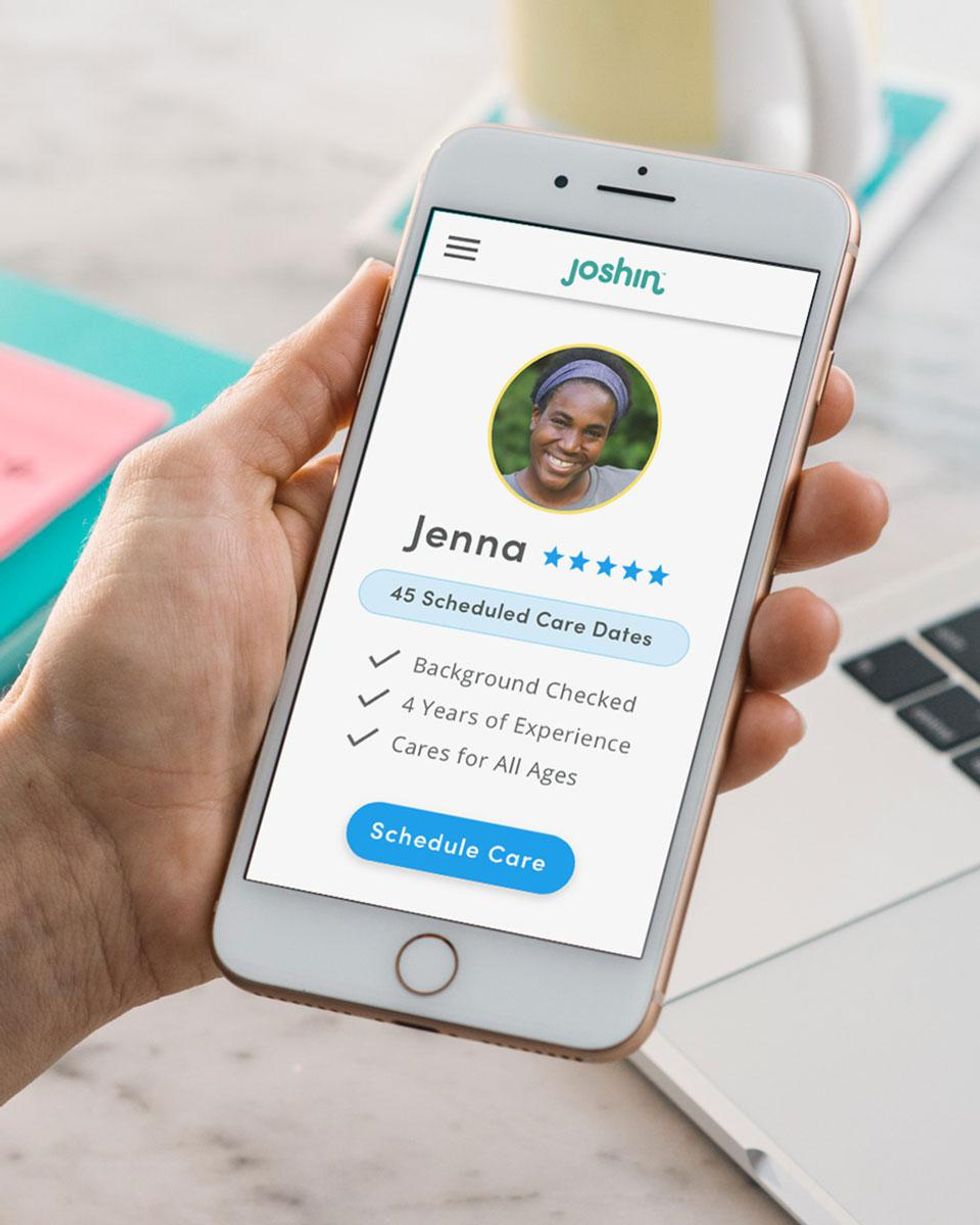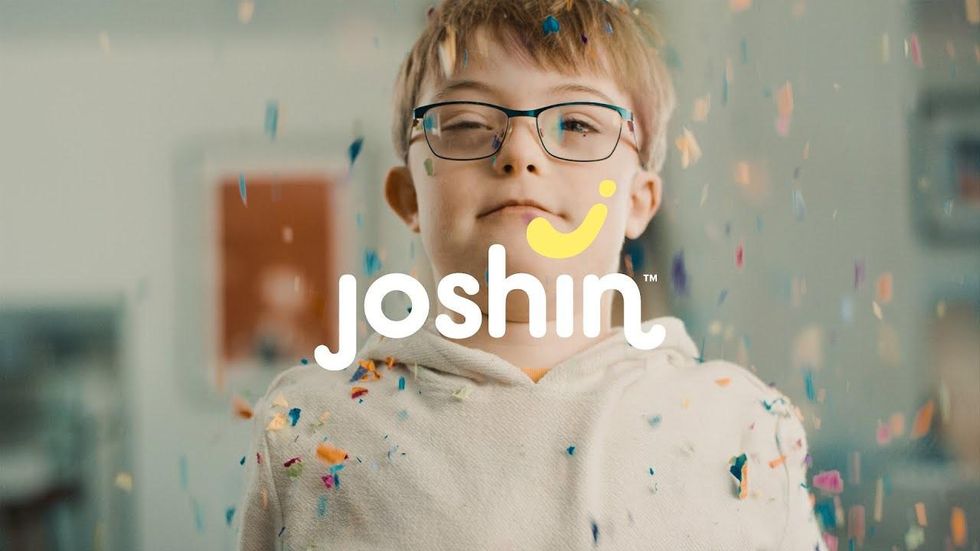A new health care startup in L.A. aims to make getting caregiving as easy as getting a ride, food, groceries or laundry done on demand.
Joshin vets and trains caregivers for disabled individuals and connects them through its app with specific caregiving jobs posted by families in need. The service launched this week in Los Angeles, along with Minneapolis, Chicago, New York City and Seattle. The families can use the app to create structured, specific care plans for their loved ones while they're gone and schedule regular appointments.
"It really came to light as we saw marketplaces emerge where you could get groceries delivered, you could be picked up by a Lyft, but really in the disability space it continued to be un-digitized," co-founder Melanie Fountaine said. "We felt it was time to see how big of an impact you could make by leveraging technology — but backed by a human mission."
This week, Minnesota-based Joshin raised a $3 million seed round from the Autism Impact Fund and Anthemis Group to expand nationwide and court more corporate clients. The goal is to be in all 50 states within the next year, its founders said.
Founded from Experience
Startup founders and twin sisters Fountaine and Melissa Danielsen know firsthand the challenges that come with providing quality care to a disabled loved one.
Growing up in a Native American family in Minnesota, the twins and their family didn't have easy access to resources many of us take for granted, including health care. Their brother Josh had epilepsy and was diagnosed with brain cancer, which required around-the-clock care. After Josh passed away 12 years ago at age 29, Fountaine and Danielsen processed their pain, in part, by throwing themselves into creating companies that could help other people in their brother's situation live better.
Danielsen is Joshin's CEO, while Fountaine serves as chief operating officer.
"Melissa and I grew up on a farm in northern Minnesota with limited natural resources and support," Fountaine told dot.LA. "Our family was very blue collar and often working so Melissa and I were caretakers and we're so grateful to have had the opportunity to learn those skills and to be who we are today because of it."
One in 5 American kids have health needs that require intense care, according to the CDC.. The twins observed that most health care is geared towards children up to age 12, or adults over 65 — but the middle section of adults with special needs is often ignored.
"Over 112 million Americans have a complex need which is about 30% of the employee population," Fountaine said. "They're spending 10 times the amount of time than the average employee on managing care, and we really feel like the care benefits that are out there aren't specifically designed for them," she added.
"We hear a lot about childcare backup benefits, or just childcare in general, which drops off after 12, and we do hear about elder care, but that picks up at 65. What's missing and the key now is ages 13 to 64," Fountaine said. "
She added that the Biden administration is "really focused on the care infrastructure, and specifically around Medicaid," which excites her. "We're seeing advancements in the care economy that we're really excited about, and we feel like Joshin is really positioned to be that leader in complex care," Fountaine added.
While there are ample disability startups, not many focus on providing care directly to the wide range of ages Joshin is targeting. A similar company is Sprout Therapy, which provides in-home therapy to autism patients and operates in L.A. In Australia, AbleFinder operates a social network for families of children with disabilities. Most firms — like Silicon Valley-based CarePredict — focus on wearable devices for emergency alerts and communicating with care providers, but don't actually send out caregivers.
Digital health care services are on the rise, but few are targeting Joshin's specific niche. According to
PitchBook, "venture investment in retail health & wellness companies surged in Q3 2020, with $2.3 billion" invested in over 100 deals. The digital and mobile health market is expected to surge 385% to $173.8 billion nationally in the next three years.
COVID's Impact on Health Care Startups

The sisters' first company, Josh's Place,provided in-home care and accommodations for adults with disabilities across Minnesota and was bought out in 2019. The twins took what they learned from Josh's Place and founded Joshin in 2018, naming another startup after their brother with the goal of expanding it far beyond the Midwest.
"Joshin is the only digital platform that provides access for people with special needs to vetted, qualified care providers," Autism Impact Fund co-founder Chris Male said in a statement Tuesday. "The mission of The Autism Impact Fund is to revolutionize the status quo for diagnosing, treating and living with autism through a venture capital model, and we are proud to invest in Joshin as they continue empowering families and individuals through a service that can help transform that quality of life for countless people."
The twins said Joshin has seen user growth up 200% over the past year. Over 3,000 people, both caregivers and patients, use the Joshin platform now and the pandemic accelerated demand.
"The pandemic has really shone a light on the need for care in general," Danielsen said. "42% of companies are planning to expand their employee care benefits in the next two years, because these Zoom cameras are showing how much families need that."
Joshin has roughly 20 employees and is hiring, including for a sales lead. It plans to use the funding to train more care providers and become active in more cities. Danielsen said the bigger goal is to court large companies and convince them to add Joshin as part of an employee benefit package. Right now they're in talks with "several Fortune 100 companies" after pitching this week.
The twins also said they hope their work with Joshin inspires more Native American founders to create their own businesses to meet community needs.
"Melanie and I really value that part of who we are," Danielsen said. "If we're talking about diversity, equity and inclusion -- the resolve and resiliency we have, part of the reason why we have it is that other piece of us."
- Wavemaker 360 Health Announces $100 Million Fund Aimed at ... ›
- Holistic Health Kenshō Raises $3.5 Million - dot.LA ›
- Can Blockchain Technology Revolutionize Health Care? - dot.LA ›
- Auticon Raises $4M to Grow Tech Jobs for Autistic Adults - dot.LA ›


